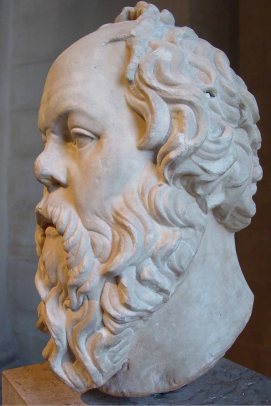Interview with Mary Midgley. “The moral philosopher has, in her 10th decade, become rather fashionable, as her fight to defend human consciousness against the likes of Richard Dawkins gathers admirers around the world.”
consciousness
Embracing the unexplained …
… by putting the immaterial on the table? Is there any kind of thing in the universe in addition to the stuff physicists study?
In “Visions of the Impossible,” Jeffrey Kripal says: “After all, consciousness is the fundamental ground of all that we know or ever will know. It is the ground of all of the sciences, all of the arts, all of the social sciences, all of the humanities, indeed all human knowledge and experience. Moreover, as far as we can tell, this presence is sui generis. It is its own thing. We know of nothing else like it in the universe, and anything we might know later we will know only through this same consciousness. Many want to claim the exact opposite, that consciousness is not its own thing, is reducible to warm, wet tissue and brainhood. But no one has come close to showing how that might work. Probably because it doesn’t.” Under the circumstances, Kripal says, we need an account of consciousness that synthesizes the “Aristotelian” materialist understanding of consciousness with the “Platonic” nonmaterialist understanding.
In “Science Is Being Bashed by Academics Who Should Know Better,” Jerry Coyne replies: “When science manages to find reliable evidence for … clairvoyance, I’ll begin to pay attention. Until then, the idea of our brain as a supernatural radio seems like a kind of twentieth-century alchemy—the resort of those whose will to believe outstrips their respect for the facts.”
And in turn Kripal replies to Coyne in “Embracing the Unexplained, Part 2,” that Coyne’s piece is “name-calling and an attempt to control and manipulate the data so that the ‘proper’ conclusions are reached. My point is a simple one: If you put the ‘impossible’ data on the table, you will arrive at different conclusions.” And to make his case he calls on Barbara Ehrenreich’s “A Rationalist’s Mystical Moment” for support.
Where does consciousness come from?
Panpsychism. “It’s a question that’s perplexed philosophers for centuries and scientists for decades: Where does consciousness come from? We know it exists, at least in ourselves. But how it arises from chemistry and electricity in our brains is an unsolved mystery. Neuroscientist Christof Koch, chief scientific officer at the Allen Institute for Brain Science, thinks he might know the answer. According to Koch, consciousness arises within any sufficiently complex, information-processing system. All animals, from humans on down to earthworms, are conscious; even the internet could be. That’s just the way the universe works.”
Consciousness … what is it good for?
What’s the point of consciousness? David Barash, an evolutionary biologist and “aspiring Buddhist,” suggests that the evolutionary advantage of consciousness “includes our efforts to interpret what other individuals are doing, feeling and thinking, as well as how those others are likely to perceive us in return.” How far is this from Nietzsche’s hypothesis that consciousness is not a self-contained sphere of individuality but is instead a net of communication among individuals?
Rethinking consciousness
Why we should rethink what we’ve been told about consciousness. This article describes two competing ideas about consciousness: “physical processes within the stuff of the brain produce consciousness rather in the way that a generator produces electricity” v. “the relationship of consciousness to the brain may be less like the relationship of the generator to the electricity it produces and more like that of the TV signal to the TV set.” And from there this provocative piece considers the policy ramifications of these ideas, concluding with something like Mill’s liberty principle: “If we as adults are not free to make sovereign decisions – right or wrong – about our own consciousness, that most intimate, that most sapient, that most personal part of ourselves, then in what useful sense can we be said to be free at all?”
Consciousness: the hard problem
Can we get our heads around consciousness? Very good review of and reflection on theories about how consciousness happens in the first place and how it in turn affects matter. “Nearly a quarter of a century ago, Daniel Dennett wrote that: ‘Human consciousness is just about the last surviving mystery.’ A few years later, Chalmers added: ‘[It] may be the largest outstanding obstacle in our quest for a scientific understanding of the universe.’ They were right then and, despite the tremendous scientific advances since, they are still right today. … The hard problem’s fascination is that it has, to date, completely and utterly defeated science. Nothing else is like it. We know how genes work, we have (probably) found the Higgs Boson; but we understand the weather on Jupiter better than we understand what is going on in our own heads. This is remarkable.”
